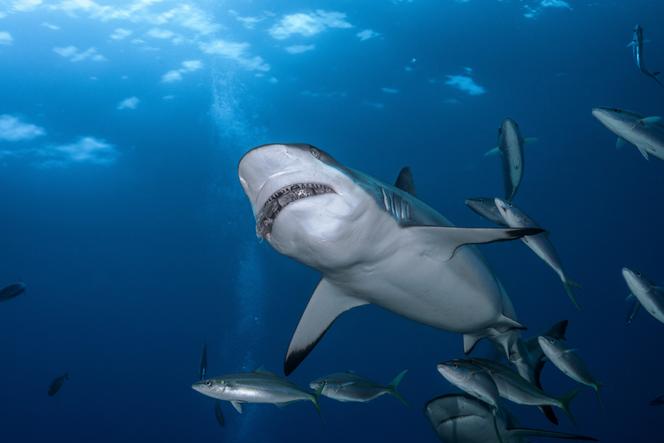


Sharks have a bad reputation, further tarnished with each new fatal attack, even though these remain rare. Worldwide, there are between 100 and 150 shark bites each year, with about 10 being fatal. Veterinarian and researcher Eric Clua, from the Criobe research station on the island of Moorea, French Polynesia, has specialized in studying these animals and has focused on a behavior he considers neglected in scientific literature: self-defense.
He co-authored an analysis in Frontiers in Conservation Science of shark bite data in French Polynesia since 1942. Out of 137 occurrences, 16 were classified as self-defense behavior by the animal and twice they were fatal. In 1942, a diver had his carotid artery severed while swimming near a shark he thought had been killed by a harpoon shot. In 1977, a diver mistakenly harpooned a lemon shark, confused with a less aggressive species, and died after several bites.
The quantitative analysis of data focused on a more recent period, from 2009 to 2023, for which a more precise registry allows detailing the sharks' motivations: 5% of the 74 bites occurred in a self-defense context. Three cases have been detailed. The first involved two young Polynesian divers who harpooned a grey shark that was overly interested in the fish they had caught. The second case took place in a traditional fish trap on the coral reef edge, where a fisherman was bitten while trying to remove a shark that had come to eat the trapped fish with a spear. The third example involves three scientists who were immobilizing sharks for samples: One of them was bitten due to an oversight.
You have 53.07% of this article left to read. The rest is for subscribers only.
